12-step programs sometimes get a bad rap. Because these programs are known for their religious roots and their spiritual approach, many addicts steer clear of them. But things are changing within 12-step programs, which is worth looking at, since more than 300 12-step fellowships are in existence all over the globe. The 12-steps have been in existence for about 80 years, and the Library of Congress recently named The AA Big Book, which is the organization’s flagship tome, among the most influential books in the world. With addiction being described by government officials as an epidemic worldwide, and with 12-step programs known as one of the most if not the most successful recovery program ever offered to addicts, it might be time to consider what’s happening inside 12-step programs.
A Secular Trend Is Brewing, and That’s a Big Deal
At a historic convention held last year held in Santa Monica, California, several hundred alcoholics met to show that a secular recovery, one not necessarily focused on a higher power, is possible. Why is this a big deal? The original 12 step program of Alcoholics Anonymous was inspired by Christians, and the spiritual nature of the AA Big Book reflects Christian ideals. The book and the 12 steps themselves are saturated with spiritual language and direction. Many believe and the Big Book endorses the idea that one cannot achieve sobriety without belief in a power greater than self, referred to as “God” throughout AA literature. However, the panels, meetings and forums that took place last September at the We Agnostics and Free Thinkers convention celebrated the thousands of alcoholics who boast long-term sobriety without a specific belief in a higher power. In fact, the convention featured two highly credible speakers – the general manager of AA’s General Service Office and a minister who served at one time as a non-alcoholic member of the AA Board of Trustees. Their messages focused on the necessity of inclusivity in the AA fellowship, dispelling the notion that the God described in the AA Big Book is a necessary component of recovery. Many at the convention, including the speakers, decried the fact that some more secular meetings have been excluded from AA meeting schedules; the convention addressed ways to assure that men and women from all religious or non-religious affiliations feel welcome in12-step recovery. Since the convention, the number of WAFT AA meetings has increased significantly. The second annual WAFT convention is expected to take place in 2016.
What Does the Secularization Trend Mean?
What’s happening in 12-step programs might be considered a reflection of the decline in church membership and the rise of people who claim a non-denominational orientation within the U.S., where AA is strongest in membership. The movement may therefore be inevitable as the population shifts to a less religious consciousness. The undertone of conflict was present at the WAFT convention, though it wasn’t virulent, and despite its no-controversy stance on outside issues, AA-at-large may have to address the rise of secularism in its ranks. As an influential global institution, AA could suffer from loss of members over the controversy, in an organization that has already plateaued in membership. Secular programs are being offered more often as an alternative to 12-step recovery; the twelve steps are being re-designed and re-constructed in many circles; and some are choosing to de-emphasize the God element of 12-step programs. If nothing else, the controversy is bringing to light a discussion that could have significance both within and outside the 12-step fellowships.
[cta]Leave a comment below or join the conversation on our Facebook page. If you need immediate assistance, call us at [phone] [/cta]


Recent Comments